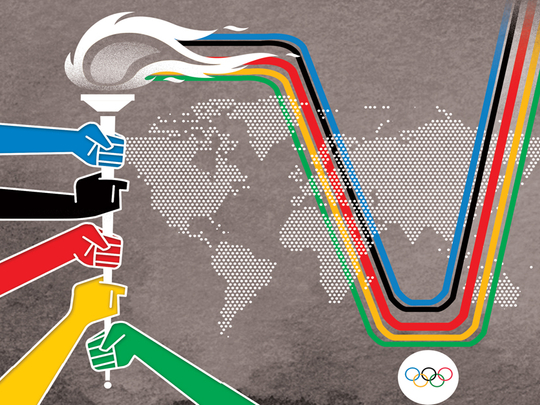
Forget the decades of snobbish exclusion, when European aristocrats and American millionaires wielded the vague concept of “the amateur” to shut out many of the world’s greatest athletes. Forget the moral obtuseness that allowed Adolf Hitler to host the 1936 Olympic Games, but barred defending gold medallist Eleanor Holm from competing in them because the 22-year-old drank champagne on the ship transporting the United States team to Germany.
Forget the bigotry that led the then president of the International Olympic Committee (IOC), Avery Brundage, to minimise the 1972 murder of 11 Israeli athletes after he had thrown the book at two US sprinters, who, in 1968, had wordlessly raised their fists in a Black Power salute. Forget the hypocrisy with which the IOC ignored wholesale doping of athletes by East Germany. Forget the corruption that nearly derailed the 2002 Games in Salt Lake City. Forget the mismanagement that nearly bankrupted a number of host cities. Forget the collusion that has made a mockery of judging in sports from boxing to figure skating.
In a couple of years, mark my words, we’ll even be asked to forget the rampant sexual abuse of US female gymnasts.
To love the Olympics, one must forget the crass commercialism, the excruciating hype and the manipulated emotion. So I am forgetting all of it — at least through the Closing Ceremonies.
I love the Olympics for two reasons: One from the head, another from the heart. The first reason took me a long time to figure out because I was distracted by a fog of Olympian rhetoric about the brotherhood of sport. “The goal of the Olympic Movement,” according to an IOC website, “is to contribute to building a peaceful and better world by educating youth through sport practised without discrimination of any kind and in the Olympic spirit, which requires mutual understanding with a spirit of friendship, solidarity and fair play”.
Eventually, I realised that in a world in which peace and friendship are elusive, the Olympics serve an important role as a valve to vent international conflict. The French nobleman Pierre de Coubertin created the modern Olympics out of his dismay at the weakness of his countrymen in their brief 1870 war with Prussia. His athletic festival would be war without the carnage, testing athlete against athlete — but also nation against nation. There was nothing pacific about the baron’s admonition that “the essential thing in life is not conquering, but fighting well”.
Concepts of honour, courage, strength and nationhood, which stoked the engines of war for millennia, are channelled into the Olympics to be played out on fields of sport, not fields of battle. Countries large and small proclaim their sovereignty and express their pride. We heard the warrior spirit on Friday in the words of Tonga’s Pita Taufatofua, who reprised his bare-chested march into 2016’s Opening Ceremonies, this time in bitterly cold conditions. “I won’t freeze. I am from Tonga!” he declared. “We sailed across the Pacific. This is nothing.”
The US and China would not spend hundreds of millions on their training programmes if they did not view the Games as an important venue for their rivalry, nor would Russia engage in systematic cheating if it weren’t desperate to maintain a place among the world’s powers. North Korea might not have sent athletes to South Korea if it didn’t see some plausible future other than lakes of fire. I love the Olympics despite themselves because I prefer symbolic wars to real ones.
Even deeper is love from the heart, which stirs at the sheer beauty of human excellence. Philosophers have tried for ages to define the thing that separates our species from all others. I think it is the capacity to aspire; to set lofty goals and endure hardships and sacrifices to achieve them.
This defining human quality can be celebrated in countless walks of life, many of them mundane: One person seeks to be a better parent, another to be a better friend or neighbour or colleague. At the Olympics, though, we see it on grand and thrilling display. Athletes from around the world display the fruits of their aspirations: The plummets of the slalom skiers; the blinding spins and balletic jumps of the figure skaters; the mastery of exhaustion by the Nordic skiers and the speed skaters; the escapes from gravity by the snowboarders and ski jumpers; the lightning and thunder of the hockey players; the stifling of fear by the sled racers.
And we have an inkling of what lies behind these dazzling displays: The years of pre-dawn alarm clocks and lonely workouts; the broken bones, torn muscles, burning lungs; the forgone comforts and blocked-out doubts. We treasure — in our age of hype and fakery — these examples of genuine, merited greatness.
This Olympic spirit we must never forget.
— Washington Post
David Von Drehle is an American author and a columnist for the Washington Post.









